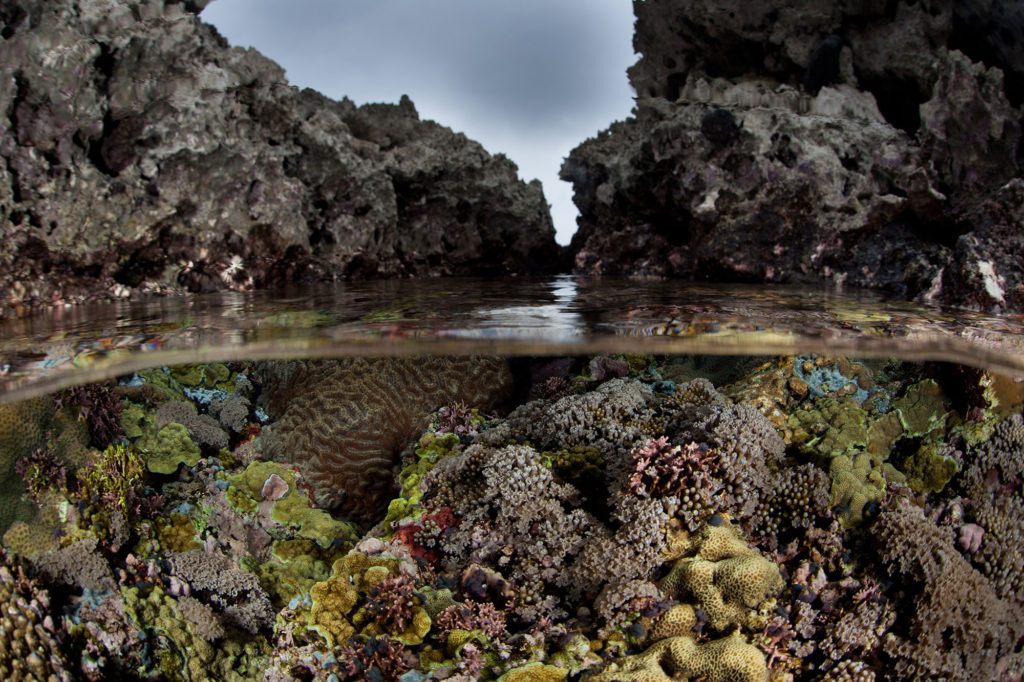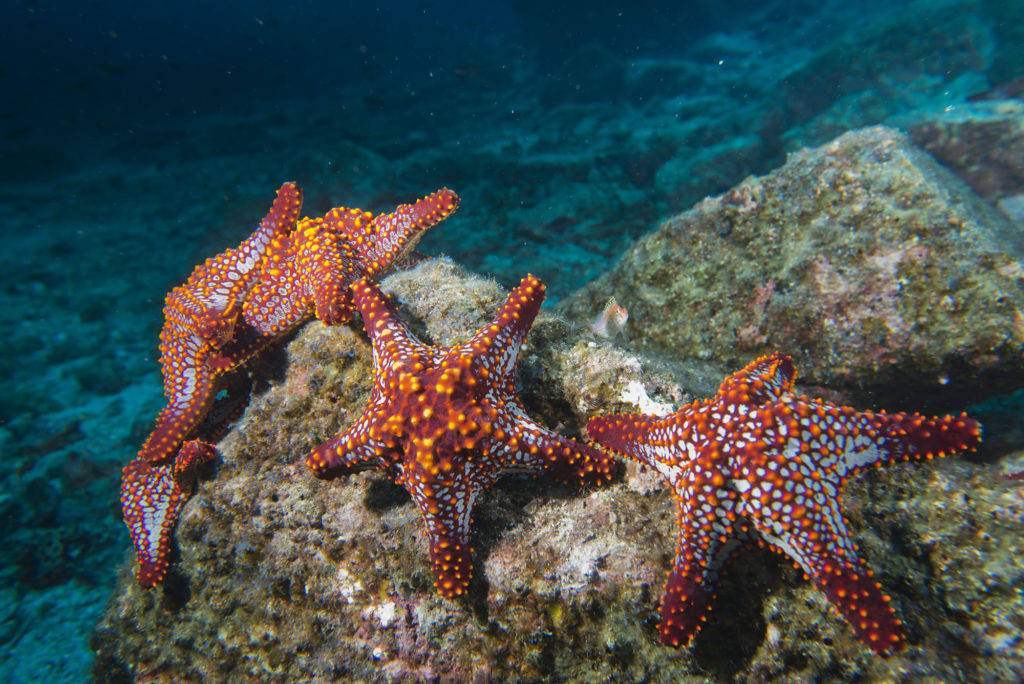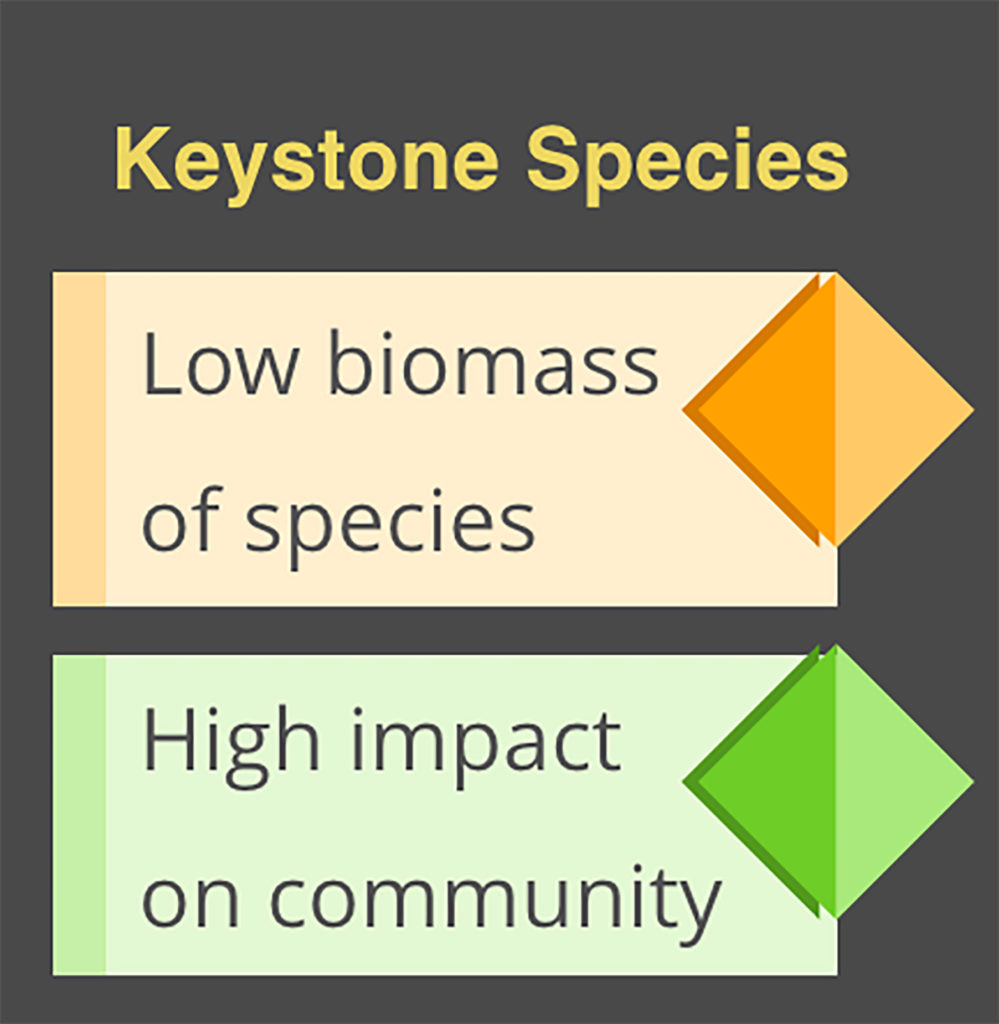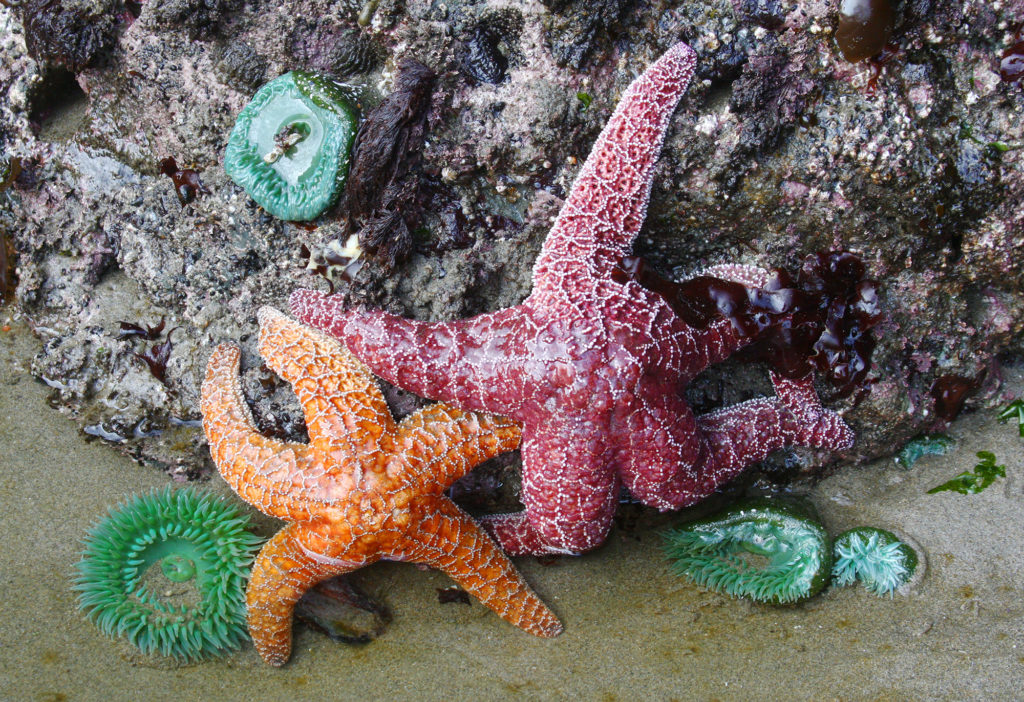Tide Pools Extreme Conditions & Abundant Life


Tide Pool Outcomes
-
Describe the risks to organisms in the tidal zone.
-
Explain how (and why) life survives in tidal zones.
-
Provide examples of keystone species in the tidal zone and near shore environments.
Scoured out rocks can create pools of water when the tides recede. The tide pools (also called tidal pools) may provide wet conditions for organisms, but there are also risks associated with living in these pools.
From your experiences and/or the videos, what risks can you think of?
Possible threats include: warming temperatures, changing pH, limited food, exposure to predators, competition for space, incoming waves, etc.

Despite harsh conditions, tidal pools have the ingredients for life: water, sunlight, and nutrients.
Organisms in tidal pools face significant threats. Along sandy shores, organisms can dig into moist sand. In rocky tidal pools, animals have ways of retaining moisture at low tide.


Hermit crabs have protective shells, barnacles have mineral structures that retain moisture.

Some of the best known organisms of near shore and tide pool habitats are the sea stars.
Along the Oregon coast Pisaster ocheaceus is shades of purple, brown, and orange are found in many tide pools at low tide.


A disease killed massive numbers of pacific coast sea stars in this decade, and this had an unexpectedly significant impact on other tidal pool species.
A keystone species has a disproportionately large impact on its community, even if it does not have a high biomass.
Loss of sea stars caused the animals they ate to increase dramatically in number, and this effect cascaded through the food web, changing the community significantly.


Check your knowledge. Can you:
-
describe the risks to organisms in the tidal zone?
-
explain how (and why) life survives in tidal zones?
-
provide examples of keystone species in the tidal zone and near shore environments?